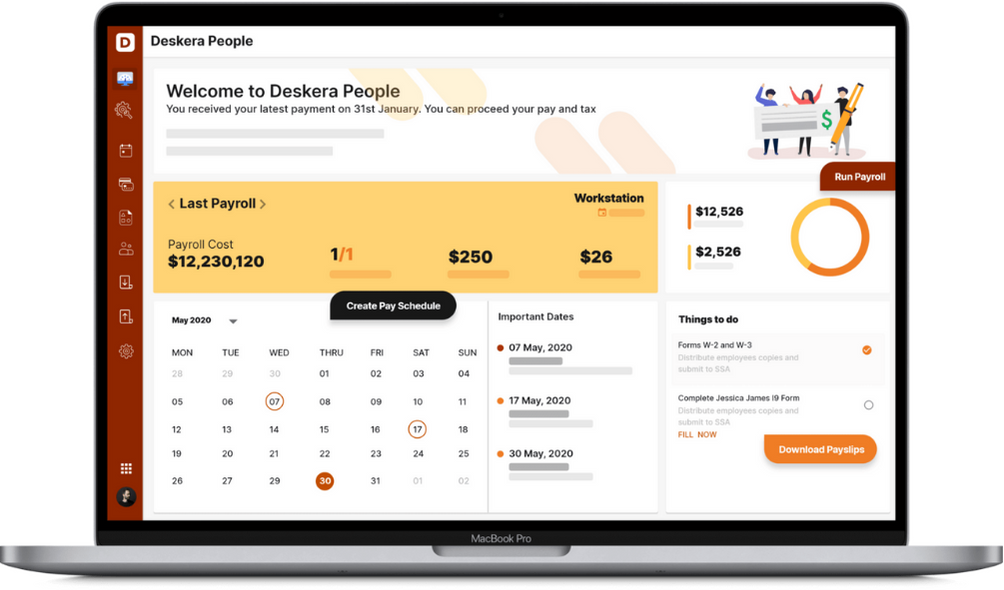Did you know that Title VII prohibits employers from discriminating on the grounds of pregnancy, childbirth, or the associated medical conditions?
Therefore, as an employer, it is of utmost importance that you abide by the Pregnancy Discrimination Act and be aware of the rules pertaining to both pregnancy and employees. The recent years have seen thousands of complaints of pregnancy discrimination filed in the United States Equal Employment Opportunity Commission. This fact has led to stringently imposing the rules mentioned under the Pregnancy Discrimination Act to bring down the number of complaints and offer enhanced job security to the affected women.
For many American families, being able to work is essential because many homes need more than one source of income. Fortunately, the Civil Rights Act prohibits discrimination based on gender, pregnancy, race, religion, and disability and guarantees working rights to women and individuals with disabilities.
The Pregnancy Discrimination Act, an addendum to the Civil Rights Act that guarantees pregnant women the right to employment, is cited in employment and case law and is enforced by the Equal Employment Opportunity Commission arm of the US government.
- What is the Pregnancy Discrimination Act?
- Important Facts you should know as a Manager.
- Pregnancy and the Family and Medical Leave Act (FMLA)
- What impact does the PDA have on medical insurance?
- What happens if someone underperforms due to pregnancy- or childbirth-related medical conditions?
- What Accommodations can you offer to a pregnant employee?
- What Steps can a Pregnant Employee take if they experience Pregnancy-related discrimination?
- What steps does the EEOC take after receiving a discrimination complaint?
- Know about other Laws that protect Pregnant Employees
- Pregnancy Discrimination Act FAQs
- How can Deskera Help You?
- Key Takeaways
What is the Pregnancy Discrimination Act?
The Pregnancy Discrimination Act of 1978, an amendment to the Civil Rights Act of 1964, is a federal law in the United States that forbids discrimination on the basis of pregnancy, delivery, or circumstances connected to it. Employers are prohibited by the Act from rejecting a competent and deserving applicant for a position based on her pregnancy.
During or after a person's maternity leave, you cannot fire them due to pregnancy. Additionally, you cannot disqualify someone from employment because you believe their pregnancy may endanger them or reject them for employment because they intend to get pregnant in the future.
Any discrimination claim made by a job candidate shall be reported to the EEOC within 45 days, and claims made by workers should be reported within 180 days of the alleged discriminatory act, along with any supporting documentation. This deadline may be extended to 300 days in accordance with state law. Because pregnancy is viewed by the law as a temporary handicap, discrimination by employers is likewise against the ADA (Americans with Disabilities Act).
What is considered Pregnancy Discrimination?
So far, we have learned that the treatment of pregnant applicants or pregnant employees negatively because of their pregnancy, childbirth, or conditions related to such situations constitutes pregnancy discrimination. This part of the article highlights the actions by an employer that may constitute pregnancy discrimination.
Here is what it includes:
- Refusing employment to a pregnant applicant
- Denying a pregnant worker the same or similar job when she returns from a pregnancy-related leave
- Terminating the employment of a pregnant worker or demoting them
- Treating a pregnant worker differently from other temporarily disabled workers
- Refusing to provide a male worker with health insurance coverage for his wife's pregnancy-related conditions if a female worker's husband has comprehensive health insurance through the same company
Examples of Potential Discrimination that could be against the Law
While you are learning about the Pregnancy Discrimination Act and its rules, it is also recommended to know about the scenarios or situations that could potentially turn out to be legally unsound.
This section takes us through some examples that shall provide you with an insight into the circumstances that are best avoided. Let’s take a look:
All the above scenarios are a general representation of what potential discrimination could look like. Employers can take a cue from this to ensure their company refrains from treating a pregnant applicant or worker in a similar manner.
Important Facts regarding PDA You Should Know as a Manager
In order to safeguard pregnant workers and job candidates, it is your responsibility as a manager to understand what the PDA protects. If yours is an enterprise that comprises employees of more than 14, then it is imperative you have a thorough grip over the regulations of the Act.
This Act covers decisions on hiring, firing, or promotion of employees based on their pregnant status and is applicable to private enterprises with more than 14 employees. Additionally, there are a few points about these laws that managers need to be aware of. Let’s check them here.
- It is illegal to reject a qualified applicant for a job because they are pregnant or may become pregnant.
- Employers are prohibited from discriminating against women of "childbearing age" because of the likelihood of becoming pregnant. This means that advancement chances, wage hikes, and promotions cannot be denied based on a person's gender.
- Making jokes about a pregnant employee's size and making comments that the worker is unable to perform her job owing to the pregnancy's restrictions constitutes harassment. It doesn't matter if the harassment is committed by management, other employees, or someone else; it is illegal.
- Pregnancy or the potential for pregnancy may not be taken into consideration when making decisions on wages, promotions, training, benefits, or other considerations.
- It is against the law to refuse to make reasonable accommodation for a nursing woman. New moms must have access to a clean, private space where they can express their milk as needed; this space cannot be a restroom. Additionally, they need to have adequate time to pump.
- Retaliation against a worker who lodges a PDA complaint with the EEOC is considered harassment and is prohibited. Retaliation is illegal and can be deduced in the case of firing someone or demoting them.
- It is unlawful to deny pregnant women health benefits based on their marital status.
- Finally, holding up the wages of a pregnant employee is unlawful.
The ADA covers pregnancy-related disabilities such as carpal tunnel, gestational diabetes, sciatica, preeclampsia, and postpartum depression. Employers must ensure these are not violated.
All of the aforementioned information pertains to illnesses or injuries brought on by pregnancy or childbirth and covers all facets of employment. Violating these protections may lead to pricey legal actions, although the implications will be based on the extent of the violation. Employers may also have to encounter individual criminal accusations.
Pregnancy and the Family and Medical Leave Act (FMLA)
The FMLA covers a woman's job absence for prenatal care, pregnancy-related disability, and to address a significant health condition after childbirth.
Under the Family and Medical Leave Act, a pregnant employee who has worked for a company with more than 50 employees for at least a year may be eligible for up to 12 weeks of unpaid, job-protected leave. An employee may take leave intermittently, gradually over time to reduce hours, completely at once, or both as long as they provide their employer sufficient notice of the absence.
What impact does the PDA have on medical insurance?
Employers must know that the cost of medical insurance would be the same for them irrespective of the ailment towards which it goes. This means that he insurer's payments can only be as much as the costs of other conditions. Therefore, if you offer health insurance, it must provide the same level of coverage for pregnancy-related diseases as it does for other medical disorders.
Employees cannot be forced to pay higher deductibles for costs associated with pregnancy.
What happens if someone underperforms due to pregnancy- or childbirth-related medical conditions?
The question can loom large in your mind about an employee who may not be able to perform as efficiently as they used to earlier. This situation needs you to understand and consider the following:
Treat as temporarily disabled employee: Such personnel must be handled the same as any other temporary incapacitated employee.
Assign light duties: According to your policies, you may be required to offer light duty, alternate assignments, disability leave, or unpaid absence.
Offer accommodations: Do remember that owing to these circumstances, an employer may be required to provide reasonable accommodations in accordance with the Americans with Disabilities Act (ADA).
Keep their position open while they are away: If an employee goes on leave, you are required to keep their position open for the same amount of time that positions are kept open for workers who are ill or temporarily disabled.
Provide benefits: if you offer any benefits to employees on medical leave, you must also offer such benefits to employees on leave due to circumstances associated with pregnancy.
Ensure equal and fair treatment: Additionally, they must receive the same treatment when it comes to seniority accrual, service crediting, calculating vacation time, salary increases, and temporary disability benefits. For example, if you demand a medical note or doctor’s certificate from a pregnant employee, the same should be demanded from any other employees who are not able to work temporarily.
You cannot demand to produce a medical certificate only from a pregnant employee.
What is a Light Duty?
Generally speaking, light duty refers to less physically demanding work that is frequently provided on a temporary basis to allow employees with temporary injuries to remain in their jobs while they heal. Although pregnancy is not an illness or handicap, under the Pregnancy Discrimination Act, pregnant employees may be entitled to light duty.
What Accommodations can you offer to a pregnant employee?
Being pregnant and working full-time is not simple. There are several factors that can deter women from giving their best performance at work. Their capacities to work can be impacted by physical discomfort and exhaustion. Nevertheless, many women continue to work successfully throughout their pregnancies thanks to the support and understanding of their employers. Considering these situations and making certain small adjustments and accommodations at the workplace can help them sail through this rough patch more conveniently.
If pregnancy interferes with a person's ability to do their regular employment obligations, reasonable adjustments may be made. You can also adopt a few measures that could help the women, including the following:
- You may decrease the employee's workload momentarily to fit her existing constraints.
- You may modify and adjust some workplace rules so that a pregnant worker can take more regular breaks
- Morning sickness is a fairly common problem faced in pregnancy. Allowing to come to work later than usual due to morning sickness can indicate a supportive attitude.
- Whenever possible, allow the pregnant employee to work remotely in the case when they have been advised to take bed rest.
- Finally, you may also supply suitable tools to enable a pregnant employee to continue working, like a stool for sitting or some kind of support while performing duties.
What Steps can a Pregnant Employee take if they experience Pregnancy-related discrimination?
Employees have the option to report discrimination by submitting a claim to the EEOC. The PDA and other anti-discrimination statutes are enforced by the EEOC to curb malpractices and discrimination against pregnant women.
The following points sketch out the steps a pregnant employee can take in the case they experience any kind of discriminatory practices by their employer:
- If an employee wants to submit a claim to the EEOC, they should not delay filing the claim.
- Employees typically have six months from the date of the discriminatory action to submit a claim for discrimination with the EEOC in order to preserve their legal rights.
- Even if they no longer work for the same employer, employees may still submit a claim to the EEOC.
- To submit a claim, employees are not needed to retain legal counsel.
- Employees can easily find the steps for submitting a claim of discrimination on the EEOC website.
The employee may not always be prepared or know all the rights of filing claims and complaints. Even if an employee is not yet prepared to file a lawsuit, they can consult with an EEOC counselor to learn more about their legal options. To assist in resolving the issue, the EEOC may conduct an investigation or offer mediation services. The majority of local and state governments have civil rights or human rights offices which the employee can seek support from.
What steps does the EEOC take after receiving a discrimination complaint?
The EEOC notifies the employer of the complaint and launches an investigation. The implications can vary based on the type of violation. All the aspects of the violation are weighed before the EEOC gives out its decision.
To come to a decision, they can follow the following steps:
Mediation: The employers can try to come to an understanding with their employee by working with a mediator who has been recommended by the EEOC.
Federal lawsuit: If mediation is unsuccessful, the employee's case may be brought to federal court by the EEOC.
Dismissal with "right to sue": The EEOC may choose to end the case with a "right to sue" letter informing the employee of their ability to bring a lawsuit on their own behalf.
Know about other Laws that protect Pregnant Employees
This section aims to help both employers and employees. So far in the article, we have been underlining the importance of the PDA and how it helps the affected women.
However, it is good to know about the other significant laws that could assist pregnant employees when they face discrimination.
Amendment of Fair Labor Standard Act
The Affordable Care Act amended the Fair Labor Standard Act to ensure an appropriate and adequate break time for nursing women employees. Under this amendment, the employers are directed to ensure a reasonable break time for women to express milk till the child turns one year old.
The law also mandates the employers to provide an apt location where the women can comfortably do so. The location must be segregated and away from any intrusion by any other worker or from public view. However, these nursing requirements are not for employers with less than 50 employees.
Employers do not have to pay the nursing employee while they are away during this break time.
Family and Medical Leave Act or FMLA
Under this Act, the women employees qualify for a leave of up to 12 weeks to care for the newborn. The FMLA takes into consideration the health condition of the mother, the prenatal care she needs to provide, and other incapacities related to the post-pregnancy period. All these factors make the women employees eligible for a leave of up to 12 weeks.
All these laws work hand-in-hand, which implies that an employee utilizing her rights under the FMLA also utilizes protection offered by other laws like the PDA. The state laws can further offer additional protection to women, which the employers need to comply with.
Pregnancy Discrimination Act FAQs
Q: Can a pregnant employee be fired or transferred by her employer?
A: No. A pregnant employee's job cannot be changed or terminated by her employer under the PDA. Only the employee can propose changes to their job responsibilities if they wish to keep working there. Employers may have to offer reasonable accommodations and must permit the employee to work as long as they are able.
Q: When an employee uses their FMLA to give birth, can the business fill that position?
A: According to the legislation, employers must keep a pregnant worker's position available for the same amount of time as they would keep it open for a worker on leave because of a temporary disability or illness. According to the Family and Medical Leave Act, companies must keep a position open for the returning employee for a period of 12 weeks. The PDA sees pregnancy in the same way as a temporary handicap. The employers must, thus, abide by the rules and avoid legal hassles.
Q: What is prohibited by the PDA?
A: The PDA, which is a section of Title VII of the federal Civil Rights Act of 1964, prohibits discrimination in all facets of work. This includes hiring, promotions, firing, compensations, training, and other fringe benefits, including insurance.
Q: Can female employees be fired by their employers if they become pregnant?
A: If a business has at least 15 employees, they are not permitted to terminate an employee for no reason, according to the PDA. As long as it's possible, the employer must let the pregnant employee continue working for the company.
The pregnant employee should contact the local Women's Bureau office of the U.S. Department of Labor if she works for a company with less than 15 employees. There may be a state organization that can assist the pregnant employee.
Q: Can the Employer Fire an Employee After Receiving a Complaint about a PDA Violation?
A: It is illegal for an employer to penalize an employee or job applicant for objecting to the employer's pregnancy-based hiring practices or for making a claim. Furthermore, the employer can not fire them for giving a statement or taking part in an investigation.
Q: How Do Sick Leave and Pregnancy-Related Conditions Affect Service Credits, Pay Increases, and Vacation Calculations and Accrual?
A: When it comes to accrual, benefit, and vacation calculations, the employer must treat an employee on leave because of a pregnancy-related disability in the same way that they would treat an employee who is absent due to another kind of disability.
How can Deskera Help You?
A cloud-based HR platform and app, Deskera People benefits both organizations and employees. Regardless of whether you are working in the office or are on the go, Deskera People will make it simple for you to indicate your presence if you are an employee.

You can accomplish all this with the aid of the Deskera People's mobile app.
Deskera People features an integrated attendance and leave system that enables you and your employer to keep track of your working hours. This system is used to conduct automated payroll smoothly. Furthermore, Deskera People allows you to create a personalized calendar with holidays that are determined by your location and the needs of your business.
Key Takeaways
As an employer, it is of utmost importance that you abide by the Pregnancy Discrimination Act and be aware of the rules pertaining to both pregnancy and employees.
- The Pregnancy Discrimination Act of 1978, an amendment to the Civil Rights Act of 1964, is a federal law in the United States that forbids discrimination on the basis of pregnancy, delivery, or circumstances connected to it.
- Employers are prohibited by the Act from rejecting a competent and deserving applicant for a position based on her pregnancy.
- During or after a person's maternity leave, you cannot fire them due to pregnancy.
- Additionally, you cannot disqualify someone from employment because you believe their pregnancy may endanger them or reject them for employment because they intend to get pregnant in the future.
- Any discrimination claim made by a job candidate shall be reported to the EEOC within 45 days, and claims made by workers should be reported within 180 days of the alleged discriminatory act, along with any supporting documentation.
- Because pregnancy is viewed by the law as a temporary handicap, discrimination by employers is likewise against the ADA.
- Refusing employment, demoting, and terminating the employment of a pregnant worker all constitute discrimination.
- Refusing to provide a male worker with health insurance coverage for his wife's pregnancy-related conditions if a female worker's husband has comprehensive health insurance through the same company is also termed discrimination.
- Retaliation against a worker who lodges a PDA complaint with the EEOC is considered harassment and is prohibited. Retaliation is illegal and can be deduced in the case of firing someone or demoting them.
- It is unlawful to deny pregnant women health benefits based on their marital status.
- Holding up the wages of a pregnant employee is unlawful.
- The ADA covers pregnancy-related disabilities such as carpal tunnel, gestational diabetes, sciatica, preeclampsia, and postpartum depression. Employers must ensure these are not violated.
- Under the Family and Medical Leave Act, a pregnant employee who has worked for a company with more than 50 employees for at least a year may be eligible for up to 12 weeks of unpaid, job-protected leave.
- If you offer health insurance, it must provide the same level of coverage for pregnancy-related diseases as it does for other medical disorders. Employees cannot be forced to pay higher deductibles for costs associated with pregnancy.
- Employees have the option to report discrimination by submitting a claim to the EEOC. The PDA and other anti-discrimination statutes are enforced by the EEOC to curb malpractices and discrimination against pregnant women.
- The EEOC notifies the employer of the complaint and launches an investigation. Mediation, federal lawsuit, and dismissal with ‘right to sue’ are some of the steps a complainant can take to report discrimination.
- Amendment of Fair Labor Standard Act and the FMLA are some of the other laws that protect women from discrimination based on pregnancy.
- A pregnant employee's job cannot be changed or terminated by her employer under the PDA.
- According to the legislation, employers must keep a pregnant worker's position available for the same amount of time as they would keep it open for a worker on leave because of a temporary disability or illness.
- If a business has at least 15 employees, they are not permitted to terminate an employee for no reason, according to the PDA.
Related Articles














